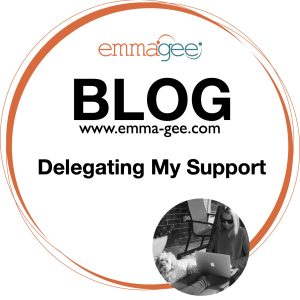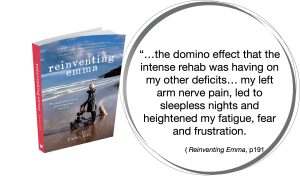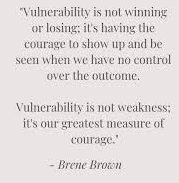 Ever since my recent hospital admission, I have felt like a burden to those around me. Having to rely heavily on people a lot more than usual has definitely taken a toll on my mental health.
Ever since my recent hospital admission, I have felt like a burden to those around me. Having to rely heavily on people a lot more than usual has definitely taken a toll on my mental health.
In fact, the moment I entered the hospital, I felt the weight of my vulnerability press down on me. It was so much harder to advocate for myself there with new doctors and medical professionals who didn’t know me.
Basically, in my vulnerable state, I was unable to articulate my own needs. For example, the experts prescribed me medication to lessen my pain. However, I know these pills only increases my pain and worsens my other neurological deficits like my balance and ataxia. Although I’m sure they had the best intentions, often they’d administer medications without considering my input. As a result, I was left to cope with the consequences. Sleep deprivation, pain and multiple other deficits became constant companions. Subsequently, it became so difficult to withstand the physical and emotional toll of my hospitalisation.
Write in my book – “I was slowly beginning to see the domino effect that the intense rehab was having on my other deficits. While I could walk with a stick now, it triggered my left arm nerve pain, led to sleepless nights and heightened my fatigue, fear and frustration…”
( Reinventing Emma, p191)
This meant asking for more help than I usually would. Often I seem to internalise my fears when I’m going through a hard time as I don’t want to burden those around me. Already feeling like a burden with my disability, paired with being hospitalised and then feeling my mental health slip as well is a lot to put onto others.
However, in the last week of my hospital stay I managed to regain agency over my health and have been able to put in place measures to look after myself.
I asked for my yoga mat to be brought in to help me with pain management. I know movement helps me so much more than prescribed pain medication will. I had my physio come to the hospital to both educate my new doctors and help me. I asked for more support from my support workers than I usually would. Having these resources around me helped both my physical and emotional well-being. Actually, in delegating to other support networks I invertedly reduced the burden on my family and friends. The power of delegation!
I also know that by addressing my emotional well-being whilst I’m healing means that on the other end, I will be in a far better position. It’s so easy to focus on healing my body when it drops in health and forgo my mental health. Then when my body feels better, my mental health is terrible and it’s a whole new process to go through that.
Delegating tasks and seeking emotional support from others has become a lifeline in my healing. While I tend to internalise my struggles, I realised the importance of reaching out and sharing with those who care about me. Vulnerability, I learned, is not a weakness but a source of strength. Berne Brown talks about this often in her podcast. 
Being able to talk to my family and friends about this process has been really helpful for my healing. And it’s also helping me understand that it’s okay to ask for more support during trying times. I’m so aware of the structures I have around me, from support workers, physio’s, yoga teachers, friends and family, and they can all take part of the burden in smaller amounts and I can really focus on my healing.
We can all learn to lean into vulnerability more as it is a sign of strength and inspiration for others. Have you shown your vulnerability recently? Can you delegate to another or lessen the feeling of being a burden and take control of your predicament?